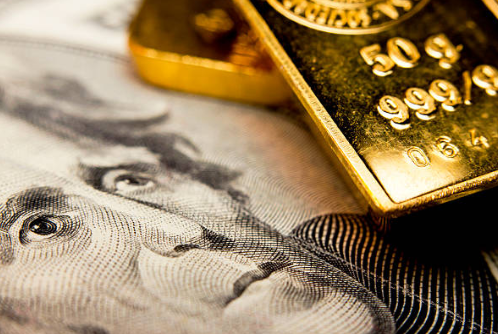
Money is not the root of evil as many people mistakenly think. Corrupted money (i.e., fiat money and currency debasement), however, is the root of many economic, social and cultural evils.
Most people know what money is, superficially, yes. Also, most don’t quite understand the concept of money. Otherwise, as Henry Ford put it “It is well enough that people of the nation do not understand our banking and monetary system, for if they did, I believe there would be a revolution before tomorrow morning.” Indeed, if money was well understood, today’s fiat money system would not exist.
Money is first, foremost, and fundamentally a medium of exchange. A generally accepted good (physical and now digital also) that intermediates transactions within societies and between societies. In his new book Understanding Money Mechanics, which I recommend as it provides an easy-to-digest yet comprehensive overview of the theory, history, and practice of money, economist Robert P. Murphy wrote:
A formal definition for money is that it’s a universally accepted medium of exchange. Menger’s explanation showed how such a commodity could emerge from its peers merely through voluntary transactions and without any individual seeing the big picture or trying to “invent” money.
Besides being a medium of exchange, money can and does function as a unit of account and store of value.
Medium of Exchange
Before the concept of money emerged spontaneously (yes, money is an invention/discovery of the market, not of the state) early humans traded goods directly—the barter economy (direct exchange society).
Direct exchange means for a trade, a purposeful and voluntary exchange of goods or services to take place, let’s say, between a hunter and a farmer, their wants would have to coincide. The farmer would have to want a piece of meat and the hunter a portion of the farmer’s potatoes. This is what economists call the coincidence of needs.
Money emerged naturally as the solution to the ‘coincidence of needs’ problem and ushered in a new, more efficient way of trading and a superior social system altogether—the indirect exchange society. Human societies have been indirect exchange economies for thousands of years now thanks to money, a medium of exchange.
Unit of Account (A Measure of Economic Value)
We use measurements like kilograms for mass, minutes for time, and liters for volume. Likewise, money as a unit of account functions as a measure of economic value. Needless to say, value is, without a doubt, subjective. Goods and services are valued subjectively by each of us according to our needs, wants, preferences, perceptions, and circumstances. See subjective theory of value for more.
When I say money as a unit of account measures economic value, I, of course, refer to the fact that it is the objective monetary standard for the measurement of subjective economic transactions. Prices are fundamentally exchange ratios between goods and services. In indirect exchange societies, however, prices are quoted in money. Therefore, money is a tool, an objective monetary measurement, against which all goods and services are measured by.
For example, if a bouquet is priced at fifteen euros, the fifteen euros represent, at that time, the objective monetary measurement against which individuals, or group of individuals, will subjectively categorize this or that bouquet as expensive/unaffordable, reasonable, or cheap. From which potential buyers decide whether to buy it now, later, or not at all.
Another example, one US dollar is one US dollar and it has been one US dollar for more than two hundred years. Now whether one dollar buys the same amount of goods or services today as it did, say yesterday or twelve years ago, is a separate issue. Similarly, an ounce of fine gold is an ounce of fine gold no matter when no matter where. Such is the function of money as an absolute monetary standard for measuring economic value. Hence, economic activity as a whole.
The unit of account/measure of value function of money is what makes the price mechanism possible. Thus, making economic calculations for individuals, families, businesses, and all members of society possible. Moreover, it makes profit and loss accounting possible. Profit and loss accounting is vital for determining the best (most efficient and most productive) ways of allocating and managing (limited) resources.
Store of Economic Value
Third, money also functions as a store of value. Market participants accept a given currency as payment for transactions because they believe and/or know they will be able to acquire goods and services with it today, tomorrow, or further in the future.
Modern money (e.g., fiat currencies, cryptocurrencies, silver, and gold) can function as a medium of exchange (intermediator of transactions), a unit of account (a measure of value), and a store of economic value simultaneously. This is the case with today’s national currencies in which these functions of money are inextricably linked.
Without the store of value function of money, modern society cannot exist. Because a tool for storing economic value enables savings (capital accumulation) which enables investments, which enables entrepreneurship, and the production of goods and services.
Money, in this regard, is also a tool for transferring economic value from the present to the future. The goods and services available for consumption today represent the savings, investment, entrepreneurship, and production of the past.
Likewise, the goods and services available for consumption in the future will necessarily reflect and represent the savings (and of course capital goods, which originated from savings to begin with), loans, investments, production, and entrepreneurial activities of the present.
Money: Why Is It?
Why not abolish money to free the world of tyranny, poverty, greed, and injustice? Simply because money is a moral and indispensable tool modern society cannot do without.
So, it is imperative that money, because of the vital economic, social, and moral roles it performs, be as stable, as reliable, and as incorruptible as possible. When the form of money a society uses is sound and independent of politicians and bureaucrats (the principal perverters of money throughout the history of money), it becomes a great enabler of social stability, economic prosperity, and freedom.
When corrupted and politically manipulated, however, money can be a tool of evil with disastrous economic, social, and moral consequences. As more evidently seen in the many cases of hyperinflation in history. Most recently in Zimbabwe, Venezuela, and Lebanon.
This is why fiat money—unbacked and inconvertible currency of unlimited supply—should be rejected for it is notoriously known for being an unreliable and ruinous form of money. Fiat currencies tend to be unstable, inflationary, and easily corruptible. Worse than that, fiat currencies do not stand the test of time and do have an extensive record of failure.
Money Enables Indirect Exchange
Modern society is based on the indirect exchange made possible by money, as mentioned earlier. Thus, the concept of money is one of the most important discoveries in human history. It is the concept that largely enabled humanity to escape a primitive state of existence to the modern society and living standards of today.
If money were abolished, modern society would cease to exist as we know it and living standards would completely collapse. Money must exist because of the impracticability of barter—a direct exchange society.
The barter economy is antisocial and extremely limiting, to say the least, because of the “coincidence of needs” problem. Trade, progress and human cooperation would be agonizingly restricted and society would remain in primitiveness.
Barter was unworkable then and it is even more so today. Today’s societies cannot function without this wonderful tool we call money. The benefits of indirect exchange to society and human progress cannot be overstated.
Money Enables Specialization
Because of money we live in indirect exchange societies. So, people can specialize in chosen tasks as opposed to having to be a jack of all trades. You no longer need to grow your food, build your house, fish to eat fish, and all other tasks you would have to do by yourself, with your family or tribe as it was in barter societies.
Nor does one need to get goods and services through force and violence. Instead, you can, based on your natural or learned abilities, produce goods or services, sell in the market, and with the money earned buy goods and services to meet your and your family’s needs and wants.
This is the division of labor. Money is the tool that makes the division of labor in society possible.
The division of labor has enormous benefits that go beyond creating a better, cheaper, and growing pool of goods and services for people to choose from. The division of labor also promotes peaceful and large-scale social cooperation, friendship, greater trade, cultural exchange, knowledge sharing, and more.
Such is the civilizational and cooperation-enabling nature of money.
Money Communicates
The market economy is superior to available alternatives because, among many other reasons, it is more efficient, effective, and timely in allocating resources for the production, distribution, and consumption of goods and services.
That is made possible by the price mechanism which transmits information, signals, incentives, and disincentives that guide market participants in the dynamic and never-ending process of determining when to allocate capital, what to produce, where, how, by whom, for whom as well as what to consume and where to buy goods and services.
This happens in a fully decentralized and voluntary manner. No need for a central planning committee. No need for government coercion, control, and command.
This is marvelously made possible by money. By money prices. That is, in essence, how money prices communicate and coordinate a market economy to a level of economic development, and individual and societal prosperity that no competing system can match. The jaw-dropping power of the price mechanism (i.e., the free price system) is essentially what Adam Smith referred to as the invisible hand.
Money Enables Cooperation
In a direct exchange society, human cooperation is agonizingly restricted and life is primitive. As the enabler of indirect exchange and thus of the division of labor, money is both an extraordinary economic tool as it is an essential tool for large-scale peaceful and voluntary cooperation within society and between societies.
For example, I have a friend who I met through a car sale five years ago. I am sure you have a similar story. A person who has become a friend or acquaintance through a business transaction. It is even common to hear of people who met through a business transaction and went on to raise a family. Many of our friends tend to be people we met at work. As self-evident as this may seem, most people do not realize that money is the underlying tool facilitating the division of labor thus large-scale social cooperation.
Money Enables Human Progress
I stated earlier that the concept of money is one of the most important discoveries or inventions in human history. That is because, without money, humanity would be still in a primitive state of existence—the barter society. Over the past thousands of years, particularly over the past few hundred years, human living standards have improved astonishingly. Progress that happened, and is still happening, in the context of money-based trade, savings, investments and entrepreneurship.
It is like a domino. Money enables the indirect exchange society, which enables the division of labor, which enables greater trade, which enables capital and knowledge accumulation, which enables greater productivity and production of goods and services, which enables a steady improvement in living standards. With ups and downs, trials and errors along the way, needless to say.
Conclusion
Money is moral and indispensable tool that intermediates transactions, measures, stores, and transfers economic value. Money enables the existence of the indirect exchange economy (modern society), it enables the division of labor, and it communicates essential signals that coordinate the market economy in a decentralized, voluntary, and harmonious manner.
As a tool whose implications reach all aspects of human life, money must, therefore, be as stable, as trustworthy, as independent, and as incorruptible as possible. When corrupted and politically manipulated, though it does not cease to perform its vital functions, money becomes a tool of systemic injustices and oppression that ultimately ruins society as a whole.
Because the type of money a society uses largely determines whether it will prosper or ultimately falter, an individual, or group of individuals, who prefers justice over injustice, prosperity over poverty, and liberty over tyranny must flatly reject fiat money regimes and embrace sound money.




